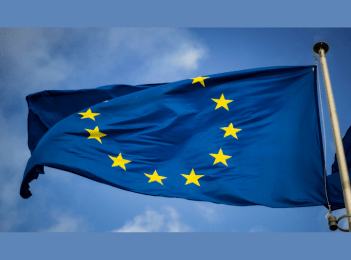
Training sessions and Policy Innovation Lab on the EU Charter of Fundamental Rights and the European Convention on Human Rights in Climate Litigation
Workshop organised by Christina Eckes
We welcome civil society organisations to join us for these training sessions focused on strategic (climate) litigation in national courts, including one session on the procedural alternatives to court proceedings in the Netherlands.
The Netherlands has repeatedly been the place where innovative climate cases have been decided. Urgenda was the trailblazer of systemic mitigation cases against states. The world has been watching the appeal decision in Shell/Milieudefensie on 12 November 2024. Further developments on the European level, such as the European Court of Human Rights’ landmark decision in KlimaSeniorinnen of 9 April 2024, have a significant impact on climate litigation in the Netherlands and beyond. We will make sense of these impacts and of the legal and procedural opportunity structures emerging in the multilayered legal landscape of Europe. In other words, what does the additional legal layers of the EU Charter of Fundamental Rights and the European Convention of Human Rights mean for climate cases in the Netherlands and other EU Member States?
Programme
11:00-12:30 Early Warning Systems: Lobbying for the Climate Beyond the Court (Jerfi Uzman & Alberto Nicotina)
This policy innovation lab explores early warning systems in form of non-judicial alternatives aimed at protecting human rights and the rule of law in the Netherlands. It focusses for example on the Netherlands Institute for Human Rights, Council of Europe institutions (Council of Ministers and Parliamentary Assembly), and the EU Annual Rule of Law Report cycle. This session is an interactive group exercise. Participants are practicing lawyers, policymakers, representatives of national human rights institutions, civil society organizations, academics, and other relevant stakeholders. Its purpose is to identify ways of addressing systemic human rights violations, build the skills and knowledge via exchange between professionals with different backgrounds, and understand the potential of using early warning mechanisms.
12:30-13:30 lunch
13:30-15:00 Training Session on the Emerging Interpretations of Articles 2 and 8 ECHR/Articles 2 and 7 EU CFR in Climate Litigation (Laura Burgers & Christina Eckes)
This training session engages with the emerging interpretations of Articles 2 and 8 ECHR in climate litigation, crucially shaped by the ECtHR’s ruling in KlimaSeniorinnen. It draws conclusions what this interpretation means for the EU and Articles 2 and 7 EUCFR. We reflect on the climate obligation of the EU, States, and companies and highlight contributions of Dutch courts to the emerging of these obligations, considering in particular Urgenda, Milieudefensie/Shell, and KlimaSeniorinnen.
15:30-17:00 Training Session on Access to Justice of NGOs/Associations (Rowie Stolk & Christina Eckes)
This training session focusses on the relevance and interpretation of Article 47 EUCFR and Article 6 ECHR for access to court in climate litigation. It places the Dutch case in the European context and draws lessons from the Court of Human Rights’ (ECtHR’s) Ruling in KlimaSeniorinnen. We consider both administrative and private law procedures in this training session and provide the participants with theoretical and practical insights about the legal opportunities arising from EU law and the ECHR in national proceedings.
All sessions consist of (1) an introduction to the topic; (2) engaging, participatory group exercises putting the acquired knowledge in practice and relate it to the participants’ practical experiences, and (3) a plenary discussion drawing conclusions about practical insights and identifying take-aways.
This event is organised with the support of the RED-SPINEL Project and the Strategic Climate Litigation project.


